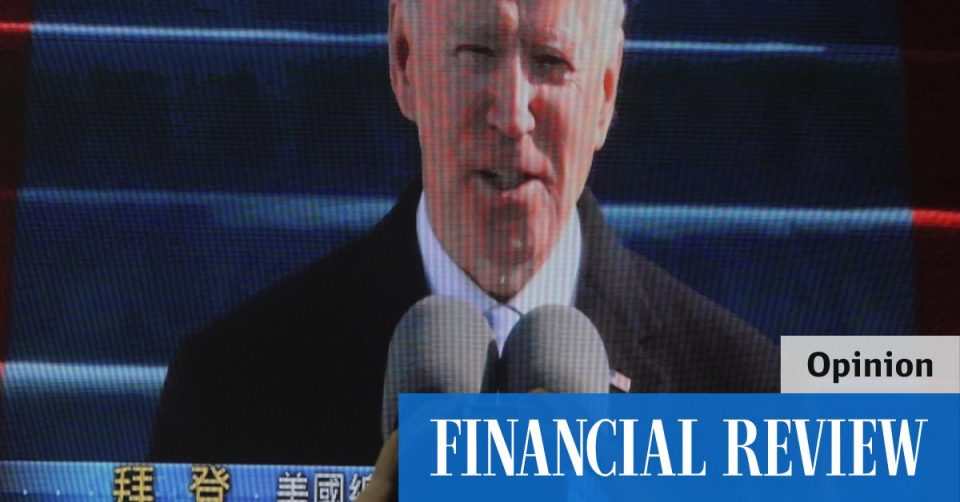Biden might focus less on the trade deficit and more on trade and economic rules, including China’s posture on state-owned enterprises, private enterprises and intellectual property rights. The Biden administration will emphasise “reciprocity”, meaning that the US will open its market to China as much as China opens its market to the US
The Biden administration may push harder on human rights issues than Trump did. On issues such as Xinjiang, Tibet, Hong Kong and Taiwan, the Biden administration’s basic attitudes will not change, while the pressure it applies to China will probably be no less than Trump’s.
There might be very little room for compromise in terms of China’s territorial and political security, but economic and trade relations are still a fairly stabilising force.
Americans are also concerned about a variety of domestic issues in China. They think that events in China may not be what they want to see, while what they did not want to see may be what actually happened. China’s actions at home and in the world determine to a large extent the attitude of the US toward us.
I believe that China, not the US, can turn the tide of US-China relations at historical junctures, although this position may be debatable. When the Communist Party of China led a successful revolution in 1949, the US began to take a hostile attitude toward a nation that was an ally in the war against Japan. This dramatic change of relations resulted from China’s domestic change.
After the establishment of diplomatic relations between China and the US in 1979, China began the process of reform and opening up. As we experienced significant changes at home, our understanding of the world changed, which also altered the Sino–US relationship to some extent.
If Biden’s rise to power offers the chance to bring some change to US-China relations, then we have to seize the opportunity and do something about it. Although I don’t think there will be major policy adjustments on issues such as Xinjiang, Tibet, Taiwan and the South China Sea, some of the reforms in the economic sphere may have an impact on bilateral ties. China’s positive attitudes on the environment and climate change may also be important for improving the relationship between the two countries.
There might be very little room for compromise in terms of China’s territorial and political security, but economic and trade relations are still a fairly stabilising force for US-China relations. American entrepreneurs, in particular, still see China as an important market.
However, in both countries, national security considerations could override economic interests. As a result, I believe that the resumption of economic and trade relations between China and the US, or the resumption of humanistic exchanges, will hardly change the new pattern of competition over co-operation in Sino-US relations.
Professor Wang Jisi is president of the Institute of International and Strategic Studies at Peking University. This article was originally published in Caixin.
caixin


